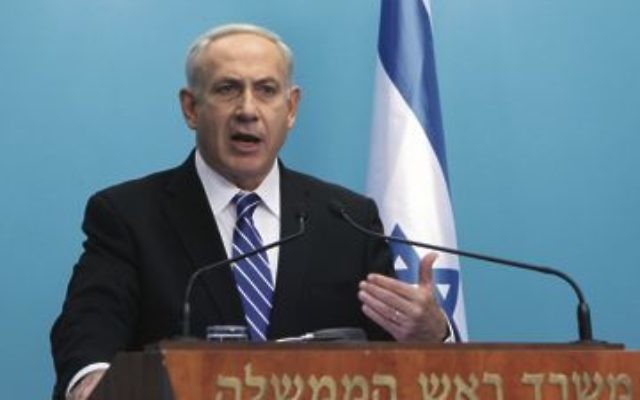‘Deep concern’ over Iran nuclear deal
LOCAL communal leaders have joined the chorus of concern from Israel over the deal to curb Iran’s nuclear program.
Under the framework agreed by permanent members of the Security Council and Germany (P5+1) and the Islamic Republic, its underground nuclear facility at Fordow would be reconfigured and cease enriching uranium, but would not be shuttered entirely. Iran would be permitted to continue enriching uranium using its first-generation IR-1 centrifuges at its facility in Natanz, but would be required to grant the International Atomic Energy Agency access to investigate allegations of covert activity “anywhere in the country”. In return, sanctions on the regime would be progressively rolled back.
Israeli Prime Minister Benjamin Netanyahu has denounced the deal, saying it gives Iran a “free path to the bomb”.
His concerns were shared by Zionist Federation of Australia president Danny Lamm this week.
“We strongly support Prime Minister Netanyahu’s assessment that the framework reveals the extent of the irresponsible concessions given to Iran,” he said.
“Let us not forget that Iran still sponsors terror, not only by financially helping Hamas … but by providing logistical support for Hezbollah in Lebanon and Assad’s regime in Syria. This is who the P5+1 are dealing with,” he said.
“The proposed deal works on the assumption that Iran is a country that will stick by its word, but the main words we have heard from Iran for decades are chants of ‘death to America, death to Israel’.”
Executive Council of Australian Jewry president Robert Goot and executive director Peter Wertheim said in a joint statement: “There are many aspects of the so-called ‘framework agreement’ which remain vague and ambiguous, and the US and Iranian governments have already issued contradictory interpretations about parts of it.
“Israel has expressed legitimate concerns which need to be taken seriously, especially as the Iranian regime continues its calls for Israel’s elimination and grossly anti-Semitic rhetoric.”
Australia/Israel & Jewish Affairs Council executive director Colin Rubenstein said: “We are deeply concerned that this unsigned framework agreement will leave Iran a nuclear threshold state, with its nuclear infrastructure, including its research, missile program and military facilities left intact.
“Any ultimate deal must ensure that the terror-supporting, expansionist, fundamentalist regime in Tehran is prevented from acquiring nuclear weapons capability. This framework risks conceding Iran precisely that nuclear status and the ability to assert further regional dominance.”
Conversely, Australian foreign minister Julie Bishop, who is set to visit Iran later this month has described the deal as “an important step towards a final agreement”.
Full coverage in this week’s AJN.
GARETH NARUNSKY
Israeli Prime Minister Benjamin Netanyahu.


comments